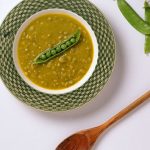
Getting kids to try new foods can become a daily showdown. One promising approach: expose babies early on to varied tastes and textures. Researchers in Brisbane, Australia, found that food experiences when just 14 months old can influence the eating habits that children will exhibit at age 3. And introducing a variety of fruits and vegetables and other types of foods early on is key to a better diet quality later on. The result: A child who eats more than just chicken fingers and cheese sticks. For the purpose of the study, the children were exposed to 55 different food items. The researchers found that having a great number of vegetables, fruits and other foods at age 14 months predicted more varied food preferences, higher food intake and less fussiness when the children’s eating habits were re-evaluated at 3.7 years of age. Babies can start eating solid food at about 6 months. Once they reach this milestone, don’t hesitate to offer a wide variety of healthy foods in a variety of textures. Ask your pediatrician for guidelines if you’re unsure of the best foods or how to prepare them. Your baby may already show a preference for one or two foods, but don’t let his or her responses deter you — keep introducing others. According to the American Academy of Pediatrics, it can take up… read on >


























-300x200.jpg)










